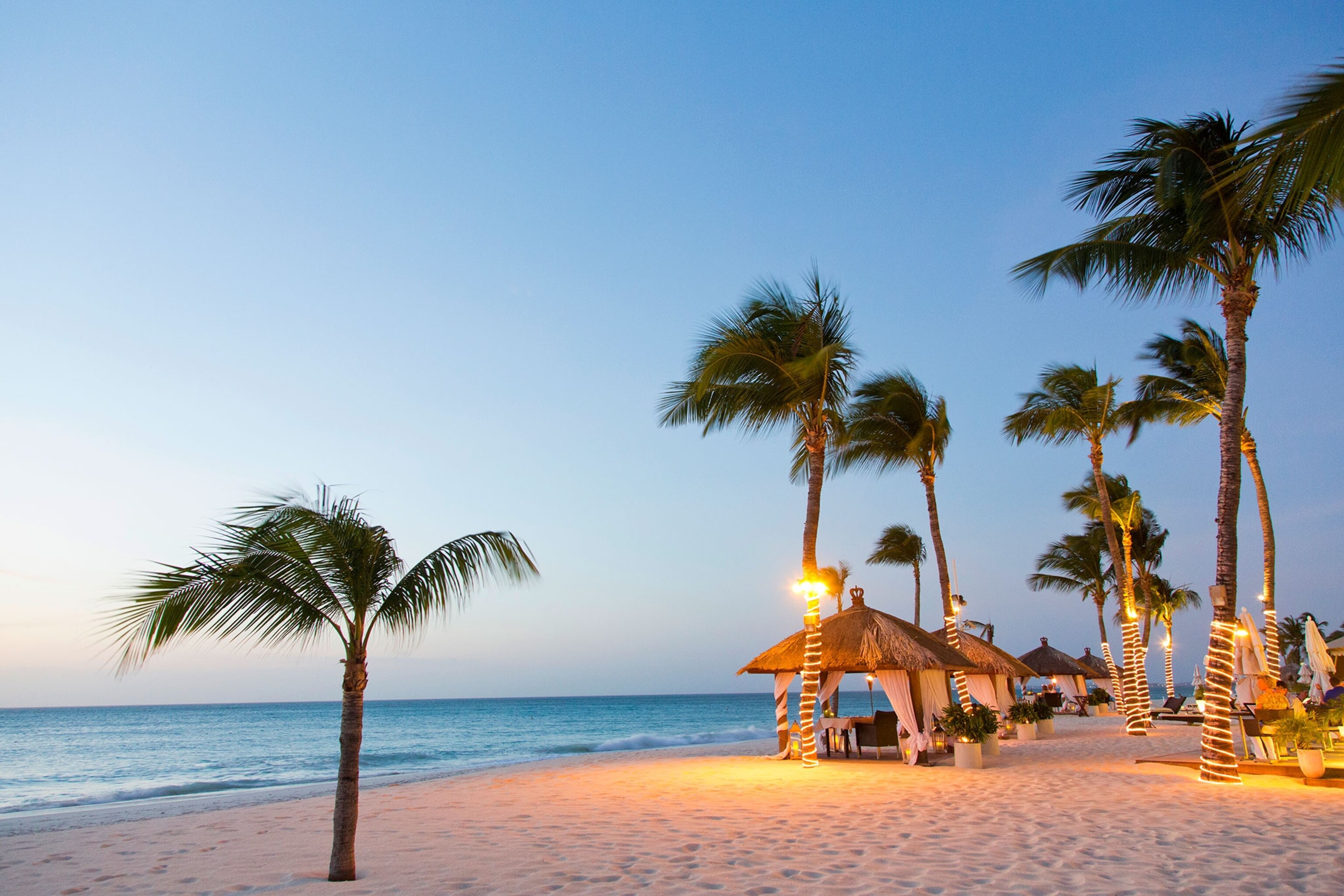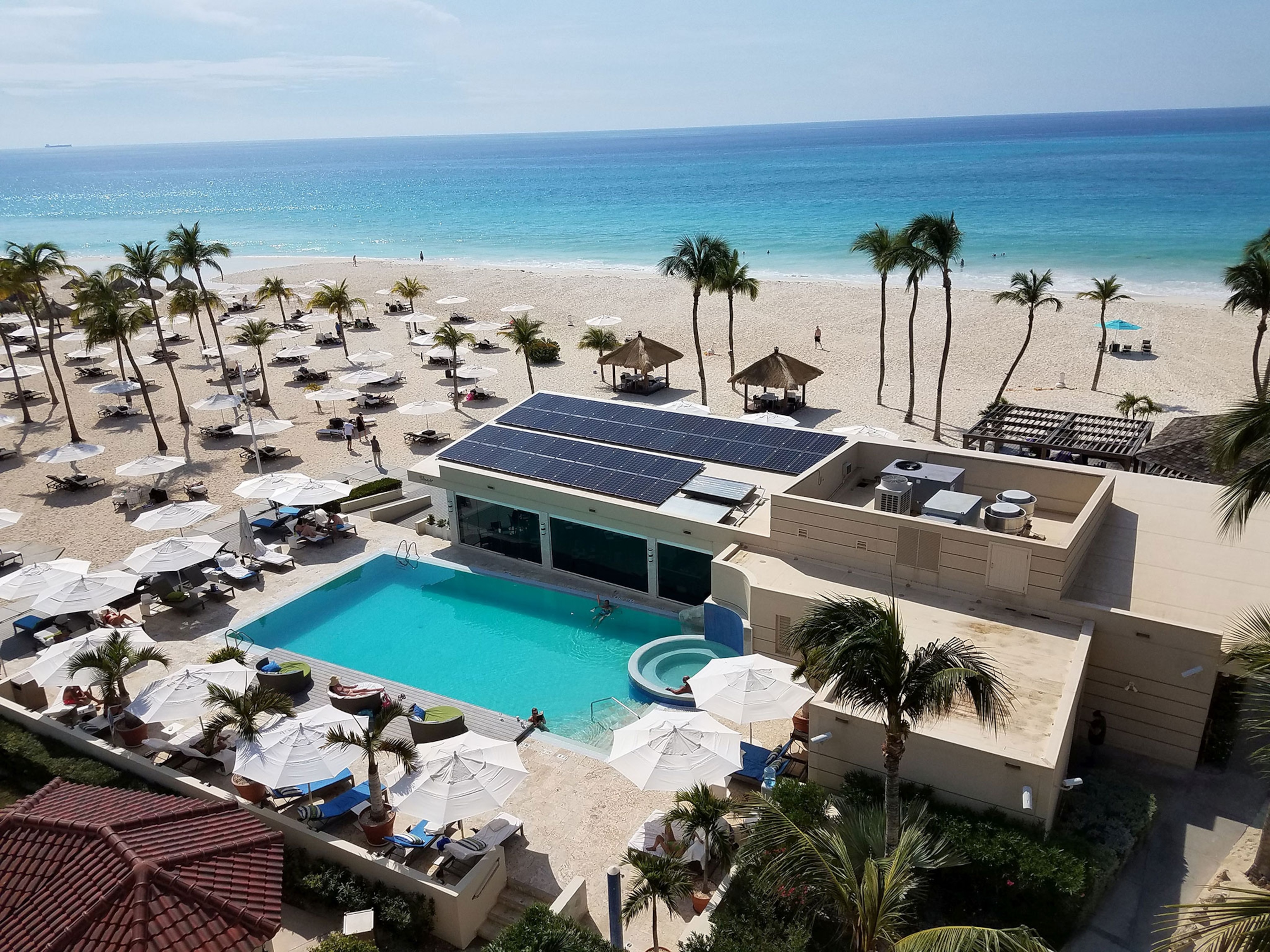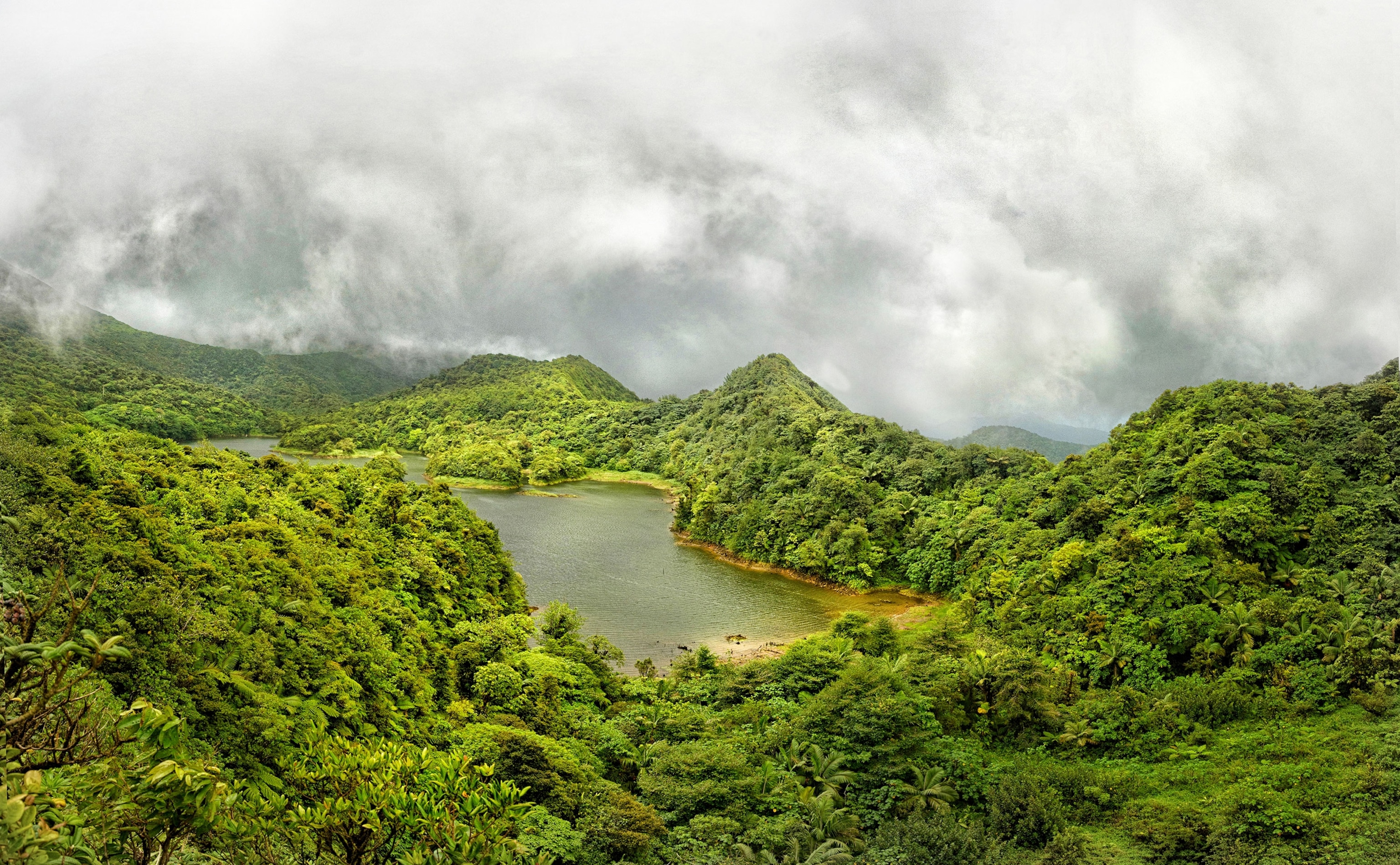
This romantic getaway is the Caribbean's first carbon neutral resort
The best beach in Aruba is also home to this eco-paradise.
Guests at Aruba’s Bucuti & Tara Beach Resort, a honeymooner favorite, feel the love even if they’re not there with a significant other. That’s partly because the hotel is located on one of the Caribbean island’s best stretches of white sand, Eagle Beach. And partly because a weeklong stay at the resort for average Americans can mean leaving a smaller carbon footprint than they do at home. And that’s even including the flight to get there.
How is that possible? It's possible because Bucuti owner and CEO Ewald Biemans thinks in big ideas. The resort has been a pioneer in sustainability in the hospitality industry for over 30 years. From organizing beach cleanups in the very early years, to installing energy efficient appliances and supporting turtle conservation programs, the resort knows the value in environmental preservation.
But two years ago, Biemans and his team set out to take it a step further and become the first carbon neutral resort in the Caribbean.
Becoming carbon neutral is no easy feat. It doesn’t simply mean washing fewer towels and turning off lights. The CarbonNeutral certification protocol means accounting for emissions for all resort needs, including daily transportation for staff, the importation of food and goods, as well as any carbon spent for conferences and business travel. And while many companies reduce their footprint through purchasing carbon offsets, Biemans was determined to become carbon neutral within the resort. His team got surprisingly far.
The resort is home to the largest solar panel installation the government of Aruba will allow, and the small amount of offsets they need to purchase come from a local wind farm. But producing energy isn’t the only answer to becoming carbon neutral. Over the last few years Bucuti has made more strides in reducing waste and energy overall. Sometimes these are through methods the guests can’t see, such as efficient appliances or reducing water and landfill waste. Other times, energy reduction comes through initiatives that also make a better guest experience. The restaurant provides meals with ingredients sourced fresh from local farms, and with lionfish (an invasive species) from local fishermen. And when guests are finished with their meal, food waste goes back to local farms to feed the pigs.
Environmentalism doesn’t stop at carbon measurements. The hotel also engages in a variety of programs that help support local artists, species conservation, and even a festive annual recycling competition.

Biemans will be the first to tell you walking the sustainability path is an arduous one, but the benefits are worthwhile. Bucuti is a place, Biemans says, where staff can feel proud to work, and guests enjoy a relaxing vacation in a gorgeous setting with no amenities lacking. But when they go home, says Biemans, they leave feeling “guilt-free.” Many even ask about recommendations on energy-efficient appliances or for other tips to take back to their own houses or businesses.
“I get compliments every day about how good they feel about it,” says Biemans. “It builds a lot of good will.”























